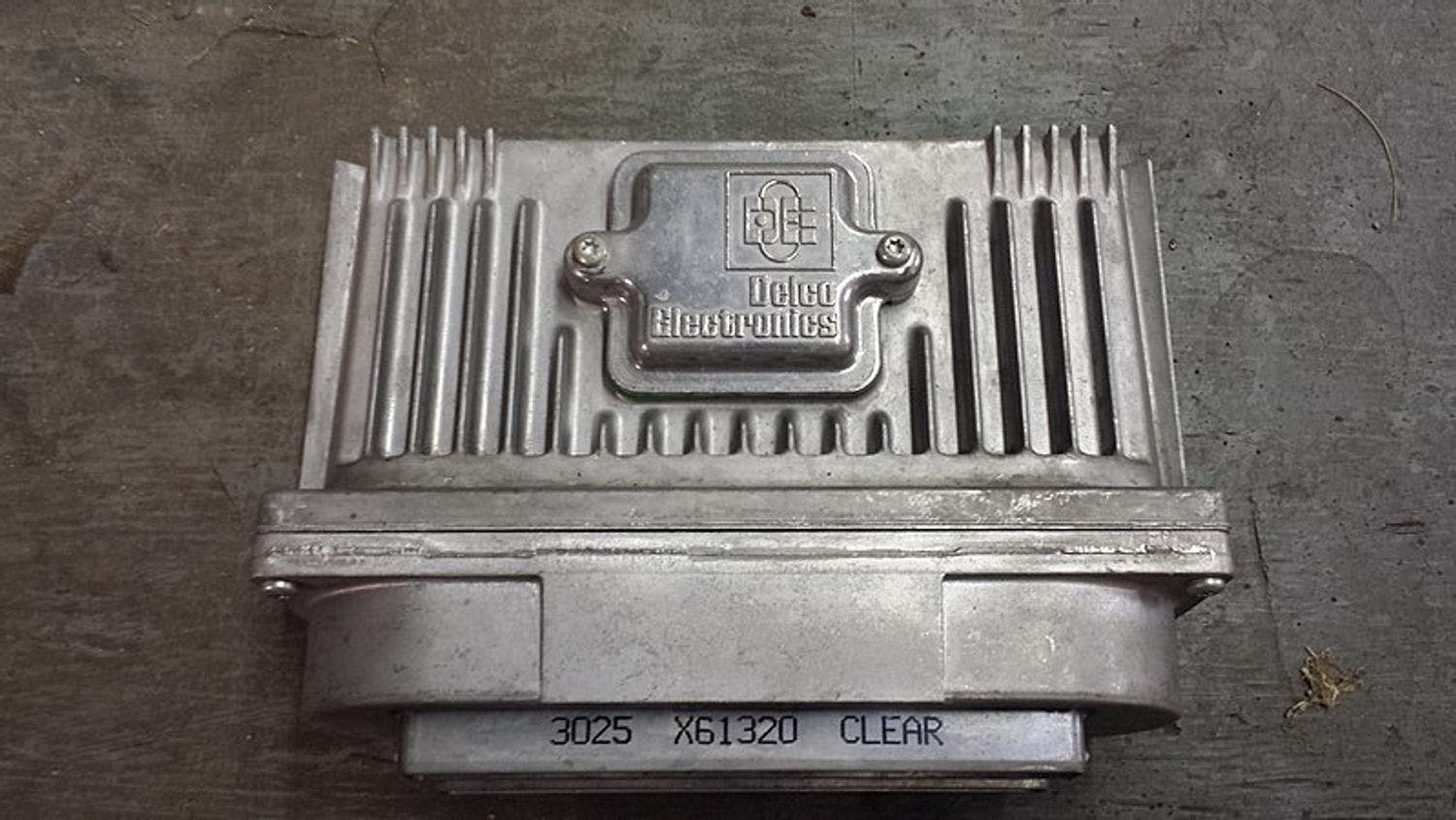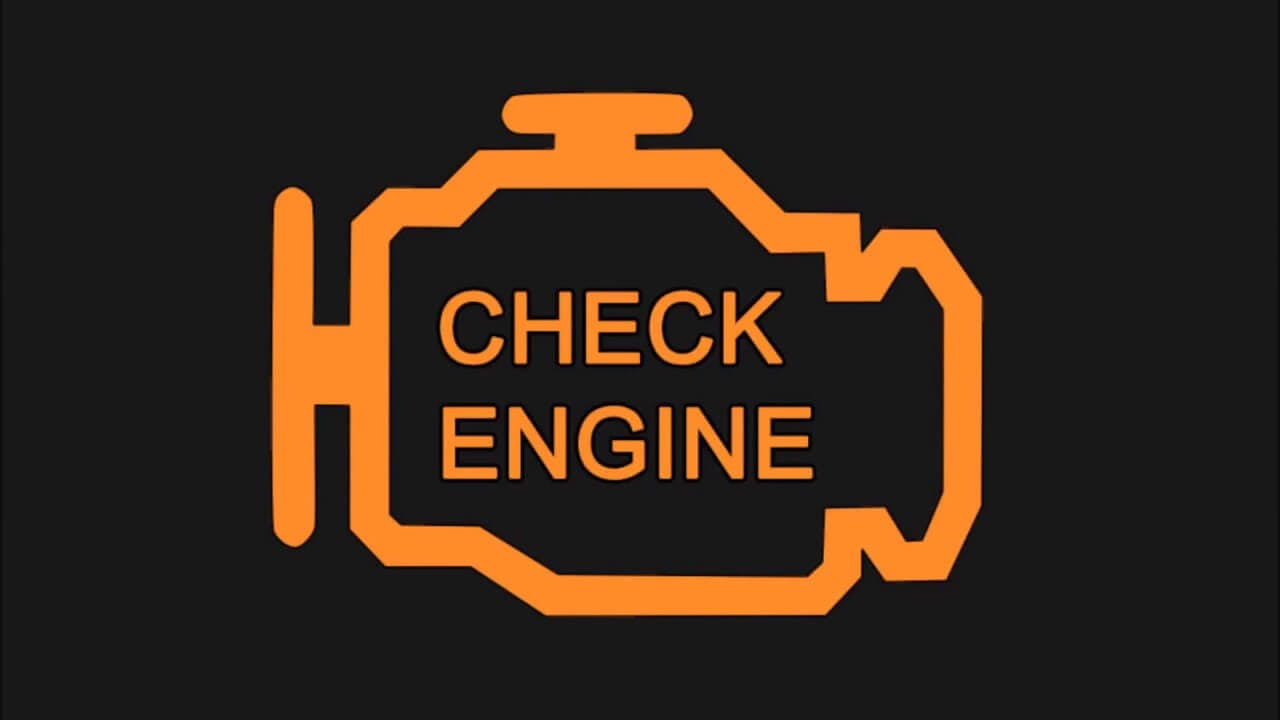Engine Control Unit: What is its function?

The engine control unit (ECU) is a small computer, i.e., a microprocessor, which controls the car's engine by evaluating data from various inputs (sensors) in real-time using specific software.
It is also equipped with a memory for storing certain types of data, for example, error codes, which can later be read using car diagnostics. One might say that the engine control unit is the car's brain.
Inhaltsverzeichnis
Modern ECUs rely on many input data, and they need a connection to electricity and a variety of sensors. Here are some of the most important data that the engine control unit evaluates:
gas pedal position
throttle valve position
crankshaft position
mass flow
camshaft position
coolant temperature
oil temperature and oil pressure
And many, many other data without which the modern engine could not function properly. All the data are gathered by sensors which send the information directly to the engine control unit.
The engine control unit's responsibility:
Based on the input data that the ECU receives from the sensors mentioned above, it's responsible for the following:
fuel injection
ignition of the fuel mixture
engine revs
turbocharger boost pressure
fault diagnosis
regulation and control of emissions
The engine control unit is, therefore, a middleman that processes the driver's request. For instance, the driver presses the throttle, and the ECU evaluates which mode would be the most efficient for the engine. The input data are processed with an efficient algorithm that quickly calculates how much fuel and air to let into the engine, but also the exact time when to perform such action.
The values that the ECU is using are stored in so-called multidimensional performance maps. These are also called lookup tables - which, simply put, is a table of values to which a specific parameter is assigned.
Another function of the ECU is to protect the engine from damage. That is, if, for example, the engine overheats and the engine control unit detects critical values, it immediately reduces power or shuts down the engine.
The history of the engine control unit in brief:
1970-1979 - The engine control unit began to control several functions, such as the solenoids on the carburetors. Later, some control units began to regulate the fuel mixture at idle speed.
1980-1989 - ECUs slowly became fully responsible for fuel management and ignition of gasoline engines.
1990-1999 - Vehicle security became part of the engine control units. They slowly began to appear in diesel cars as well.
2000-2009 - The engine control unit took a major role in throttle control, turbo control, and many emissions systems.
2010 til present - ECU has full control over the above systems. In the case of modern cars, the engine control unit can have more than a hundred inputs and outputs.
Types of electronic control units:
Modern cars are intertwined with various electronic control units that communicate with each other, but we can divide them into four units.
Powertrain - Engine (engine control unit) and its components, steering, transmission, clutch, etc.
Communication system - Radio, onboard computer, navigation, telephone, various displays, etc.
Comfort system - Central locking, air conditioning, heating, seat position adjustment, parking sensors, cruise control, suspension adjustment.
Security system - Airbags, seat belts, ABS, wipers, lights, engine diagnostics, alarm, immobilizer, ESP, tire pressure control, and much more.
The electronic control unit is an electrical device that, like any other, can malfunction at some point. Even though repair is possible, it can sometimes be irreversibly damaged, and replacement is necessary.
Malfunctioning ECU - Can I continue to drive?
A faulty engine control unit can mean a huge problem, depending on the fault. The error can negatively affect the engine's performance, fuel consumption, starts, etc.

Some symptoms of a faulty engine control unit can be as follows - Check engine warning light is on, problematic starts, higher fuel consumption, lower power, and more.
Dead ECU - What happens to the car?
If the engine control unit dies, the car cannot be started, as the engine control unit controls the engine's ignition. In addition, it can also affect various other systems depending on the type of car, but in any case, if the car does not start, it is not much relevant.